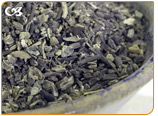Should I Take black cohosh?
For decades, black cohosh has been championed as a treatment for female-related ailments like PMS symptoms and menopause symptoms. In particular, the herb is a popular choice for the treatment of menopausal hot flashes and night sweats. Yet little clinical research has been done to support these claims or to evaluate the side effects of the herb, leaving many women to wonder whether or not usage of the herb is safe. Read on to learn more.
How Does Black Cohosh Work?
Black cohosh is a perennial flowering plant that grows in the eastern woodlands of North America. Until recently, it was believed that the herb contained phytoestrogens, or plant-based compounds that mimic the effects of estrogen when introduced into the body. Thus in theory, black cohosh would alleviate menopause symptoms by balancing hormone levels in the body.
 However, new research suggests that black cohosh works as a selective estrogen receptor modifier and that it also may exert an agonistic effect on serotonin receptors to treat hormone imbalance. Click here to read more about what is black cohosh or continue reading below to learn about its side effects.
However, new research suggests that black cohosh works as a selective estrogen receptor modifier and that it also may exert an agonistic effect on serotonin receptors to treat hormone imbalance. Click here to read more about what is black cohosh or continue reading below to learn about its side effects.
Side Effects of Black Cohosh
Black cohosh has no known drug interactions. However, the effects of the herb have not been studied long-term, so usage should be limited to a 6 month period. The University of Maryland Medical Center notes that it is not clear whether black cohosh helps prevent the growth of breast cancer cells or stimulates their growth. Women with sensitive hormone or liver conditions are also advised not to use the herb for treatment of menopause symptoms.
Short-term side effects of usage occur when women are prescribed too high of a dosage of black cohosh. The recommended dose of black cohosh ranges from 40 – 80 mg per day. Reported side effects include:
 • Abdominal pain
• Abdominal pain
• Diarrhea
• Nausea
• Dizziness
• Headaches
• Joint pain
Click here to learn more about the side effects of black cohosh.
Recommendation
Women considering the use of black cohosh to treat menopausal symptoms should consult with a health care professional. He or she will be able to discuss your options for treating menopausal symptoms.
Sources:
• Carroll, Dana G., PHARM.D. "Nonhormonal Therapies for Hot Flashes in Menopause". American Family Physician. 2006 Feb 1;73(3):457-464. http://www.aafp.org/afp/2006/0201/p457.html#afp20060201p457-b42
• Geller, Stacie E., Ph.D., Associate Professor and Laura Studee, MPH. "Botanical and Dietary Supplements for Menopausal Symptoms: What Works, What Doesn’t". J Womens Health (Larchmt). 2005 September; 14(7): 634�649. http://www.ncbi.nlm.nih.gov/pmc/articles/PMC1764641/?tool=pubmed
• Office of Dietary supplements: Black cohosh � http://ods.od.nih.gov/factsheets/blackcohosh/
• University of Maryland Medical Center: Black cohosh � http://www.umm.edu/altmed/articles/black-cohosh-000226.htm



























